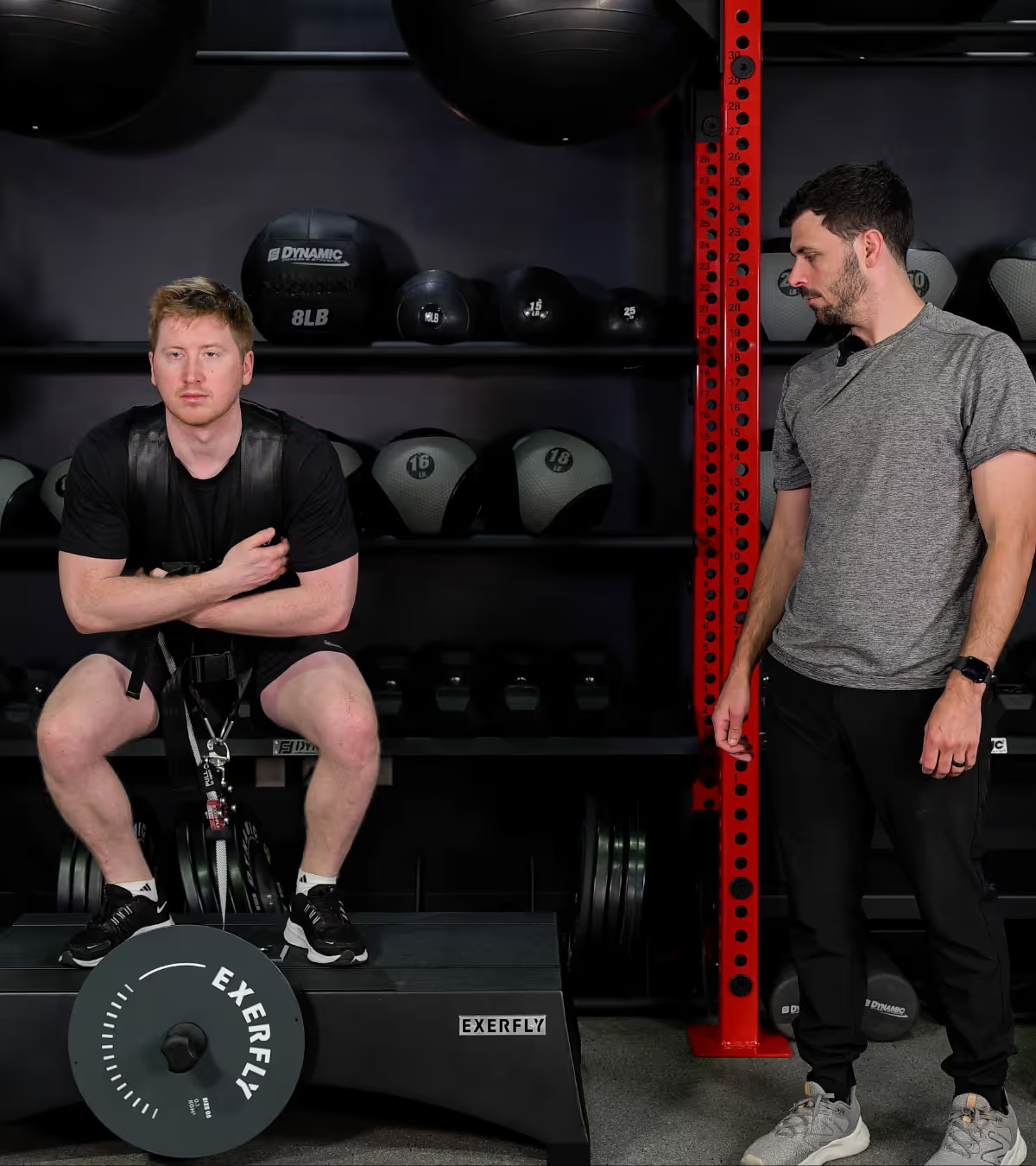
Whether you're rehabbing an injury, training for everyday life, or building elite performance, flywheel training adapts to your effort, giving back what you put in.
Flywheel resistance training replaces gravity with rotational inertia. Instead of lifting static weights, you accelerate a spinning flywheel, which generates resistance proportional to your effort. The faster you pull or push, the greater the load, particularly during the eccentric (muscle-lengthening) phase. Known as iso-inertial training, the wheel’s inertia stays constant, but your effort determines the intensity.
You generate force to spin the wheel, activating muscle shortening like standing from a squat or deadlift.
The flywheel pulls back. You fight it, slowing the momentum and building strength as your muscles lengthen.
At the switch, you pause briefly before reversing direction, mimicking the explosive changes of direction seen in sport.
This continuous rhythm trains your body to control deceleration and acceleration in one fluid motion, just like sprinting, jumping, and cutting.
The eccentric phase—when muscles lengthen under load—is where muscles are naturally stronger. Flywheel training emphasizes this phase, helping:

Build resilience and reduce injury risk

Improve strength and muscle quality

Enhance power, control, and stability

Support effective rehab and return-to-play timelines


Whether you're a physiotherapist guiding recovery, a coach refining athletic performance, or someone who wants to move better for longer, flywheel training adapts to your goals.

Athletic Performance: Power, reactivity, and strength

Sports Medicine & Rehab: Safe, scalable resistance

Everyday Strength: Functional gains for life and longevity
Flywheel resistance training is backed by years of peer-reviewed studies in sports science, physical therapy, and strength conditioning.

Flywheel resistance training calls for greater eccentric muscle activation than weight training

Effects of flywheel vs. traditional resistance training on neuromuscular performance of elite ice hockey players

Comparison of flywheel and pneumatic training on hypertrophy, strength, andpower in professional handball players
Explore our range of premium flywheel training equipment
Discover answers to your most pressing questions about Flywheel Training and our innovative equipment.
What is Flywheel Training?
How does it work?
Who can use it?
What equipment is needed?
Are there instructional videos?
Get a monthly update with new research, blogs, and exclusive offers.